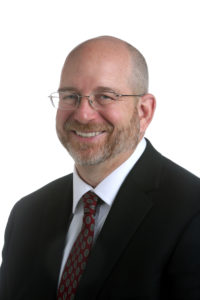HSC researcher, colleagues investigate intersections of COVID-19, TB control and global economics among immigrant communities
July 27, 2020 • Uncategorized

The world’s attention has been laser focused on COVID-19 for months, but the current pandemic isn’t an isolated problem threatening the health of communities, points out one HSC public health researcher.
“Many other infectious diseases, like tuberculosis, share similar characteristics and present dire health risks, require equal consideration of resources and prevention, and may, in fact, offer insight into models for controlling contagion and saving lives from COVID-19,” said Dr. Thaddeus Miller, HSC Associate Professor and co-author of a recent editorial for The Union, a scientific-based lung health organization, prior to publication in the International Journal of Tuberculosis and Lung Disease.
TB has long been a public health focus area for Dr. Miller, who leads one of the CDC’s 10 select U.S. research sites, based at HSC.
“There are epidemiologic overlaps between COVID-19 and TB,” Dr. Miller said. “Both are passed through close contact, both impact the respiratory system, and both diseases are more serious for already at-risk individuals and populations.”
“Anybody’s health is everybody’s health in a pandemic, and to deny that is to risk the health of everyone,” he said.
Immigrant populations, especially from countries at higher risk for TB, have long been a focus in the U.S. for testing, treatment and prevention, and may be more vulnerable to COVID-19 as well.
Language barriers, economic challenges and healthcare access can be contributing factors for risk, as well as fear of seeking resources among undocumented populations, employment or living conditions where close contact is more common and less opportunity to quarantine without serious financial hardship.
“The community spread of COVID-19 into the existing U.S. immigrant population mix of poor healthcare access, higher poverty rates and political disenfranchisement creates a perfect storm,” wrote Dr. Miller and colleagues from Drexel University and the University of Utah, “threatening an epidemiological disaster about which there appears to have been little to no discussion by policymakers.”
In these populations, the demographic risks for COVID-19 run almost in lock step with the risks for TB, Dr. Miller said.
“Ignoring the parallels between these two infectious diseases would be somewhat like a neighbor who sees fire ants next door but doesn’t consider the other family’s problem as his problem too.”
According to Pew Research Center, the United States has more immigrants than any other country in the world, with more than 40 million people living in the U.S. who were born in another country. Pew reports that most immigrants, about 77%, are living in the U.S. legally, with about 23% unauthorized.
“Failing to consider the impact of COVID-19 on those who don’t live here legally can increase the risk for everyone. The goal should be for all those living in the U.S. to be inside our safety net,” Dr. Miller said.
The authors are also concerned that with COVID-19 requiring so many resources, important TB efforts may suffer, as well as other public health needs with far-reaching global impacts.
TB killed 1.5 million people worldwide in 2018 and infected millions more, and even with COVID’s astounding climb, TB is still expected to account for a higher number of deaths globally in the years to come.
“As we continue fighting the flames of COVID-19 ahead of us, it’s important to not turn our backs on the other fires still smoldering behind us,” Dr. Miller said. “They’re not going away, they won’t wait on us to start paying attention again before flaring up.”
World economies also rely in large part on U.S. immigrant populations, who often help support families in other countries.
“The health of U.S. immigrant populations has far-reaching impacts at home and on the global community, both in terms of the resources they need to stay healthy and productive here, and the meaningful ways they contribute funds and goods back to their extended families and economies around the world,” Dr. Miller said.
“The consequences of poor health have a great affect on all of society.”
“Problems like COVID-19, TB and other public health concerns show how much larger the world’s health is than where a person comes from, how much money they make or the resources they have,” he said. “Reducing the risk for one population reduces the risk for all of us.”

Social media